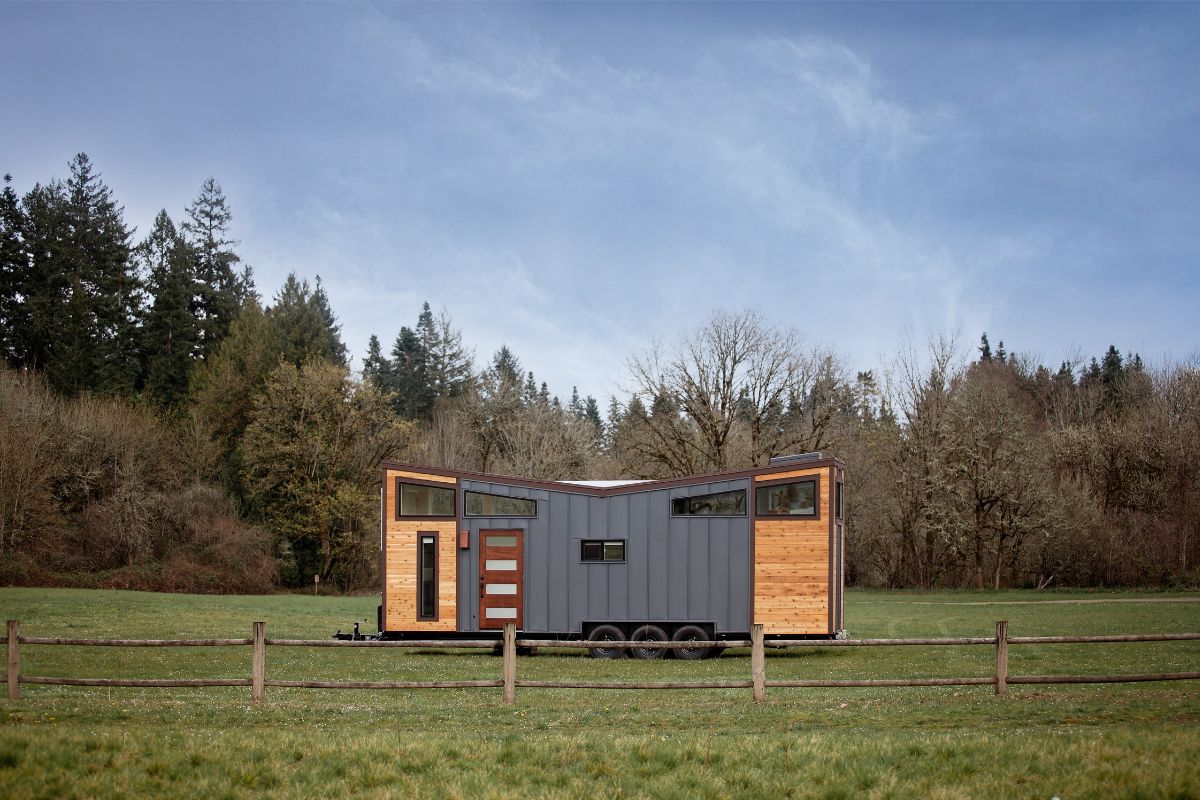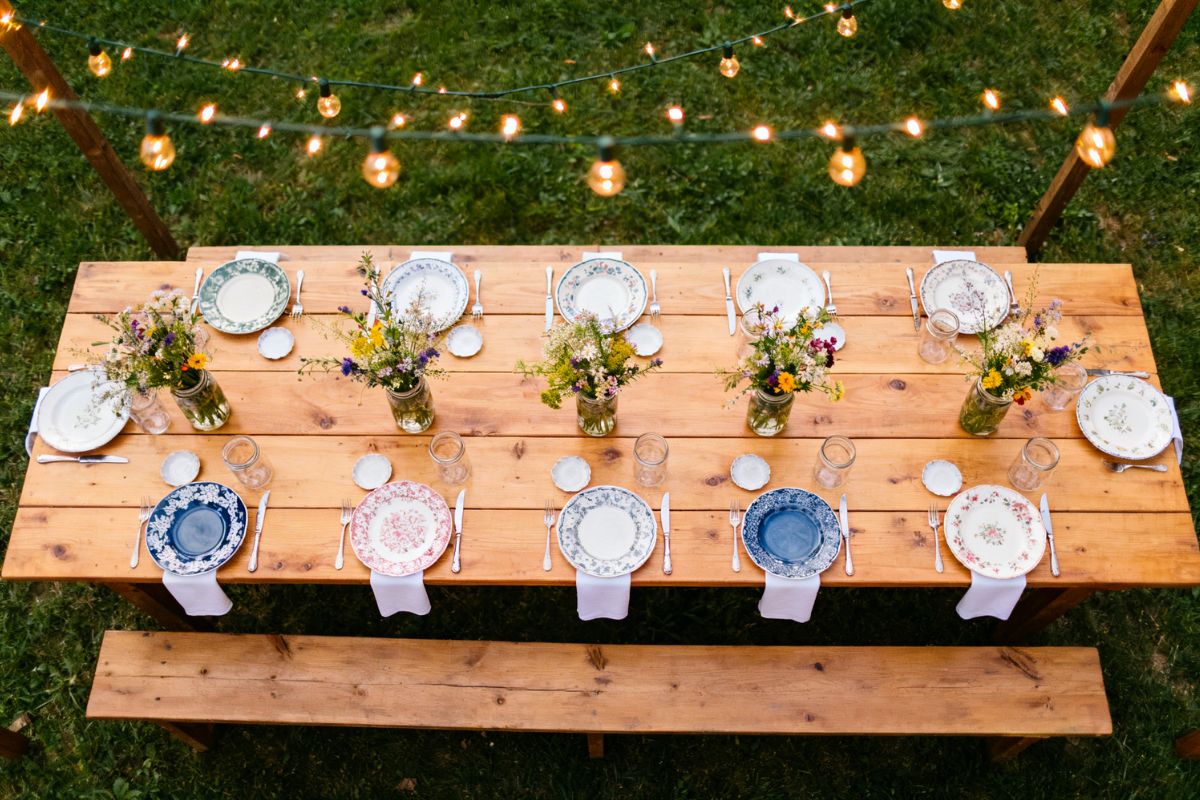Mississippi's Tiny Home Rules & Regulations

Mississippi is a hard state to categorize regarding the legality of tiny houses because there are presently no regulations that govern them.
The lack of building and zoning regulations across the state makes it a potential minefield if you're unaware of the regulatory landscape.
It's, therefore, imperative to know local tiny house laws and avoid unnecessary fines and penalties, whether you're a homeowner considering alternative living arrangements, a tiny house enthusiast trying to join a community, or a potential tiny house builder.
In this article, we will discuss the process of constructing a tiny house in Mississippi and provide information on zoning ordinances, building codes, permitted locations, minimum size requirements, and other factors that require consideration.
Are tiny houses legal in Mississippi?
Mississippi is a difficult state to categorize regarding the legality of tiny houses because there are presently no regulations that regulate them in any way.
After Hurricane Katrina, Mississippi used tiny homes as emergency shelters. Since then, the state has not officially recognized tiny homes.
This grants Mississippi residents who own tiny homes a lot of freedom.
Conversely, the absence of regulation might be risky when trying to find a set of uniform rules that spell out what is and is not permitted. Mississippi has not yet joined the trend of adopting Appendix Q.
However, you might not be able to build a small house where you want due to municipal or state restrictions on things like minimum square footage, the number of exits, the distance between a lot line and a structure, or other restrictions.
What kind of tiny houses are permitted in Mississippi?

Although there are no statewide tiny house regulations in Mississippi, the following tiny dwellings may be permitted:
Tiny houses as manufactured homes
These tiny homes are built on a frame with wheels and are meant to be permanent residences on a specific property. In general, they fall under the category of manufactured homes.
Manufactured, modular, and mobile tiny homes are subject to strict zoning regulations in most counties. These are mostly restricted to agricultural zones. They are occasionally permitted in residential dwellings, but you will probably need the zoning board's approval.
After August 1, 2009, the State Fire Marshal's Office started requiring proof of all new license applications and renewal requests.
This is for a license to operate as a manufacturer, modular contractor, developer, retailer, transporter, or installer of factory-built homes in Mississippi. They should be issued with a general commercial liability policy and a surety bond.
You most likely won't be able to construct a second home on land that already has a home because zoning restrictions frequently forbid more than one residence on a lot. These regulations specify what qualifies as a mobile house vs. a modular home.
Tiny houses on permanent foundations
These are permanently anchored homes with a foundation known as accessory dwelling units (ADUs).
Therefore, permanent tiny houses on foundations are made to remain in one place and last for the same amount of time as other houses.
You can build accessory dwelling units on properties that already have existing homes.
Tiny houses on wheels
Tiny Houses on Wheels (THOWs), sometimes known as recreational vehicles (RVs), are mobile homes that are convenient for traveling. A tiny house on wheels is an ideal option for people looking for a short-term residence.
What does a tiny house need to be up to Mississippi residential building codes?

The state of Mississippi approved a law in 2014 requiring all counties to adopt one of the universal building codes listed below.
- 2012, 2015, 2018 International Building Code
- 2012, 2015, 2018 International Existing Building Code
- 2012, 2015, 2018 International Fire Code
- 2012, 2015, 2018 International Fuel Gas Code
- 2012, 2015, 2018 International Mechanical Code
- 2012, 2015, 2018 International Plumbing Code
- 2012, 2015, 2018 International Residential Code
- 2012, 2015, 2018 International Energy Conservation Code
Local governments might, however, choose not to follow construction codes (they had until 2014 to do so). Adams County and Warren County chose to withdraw.
The International Residential Code governs the state's construction, safety, and habitability regulations.
The code covers various topics, including the accessibility of tiny houses built inside the state's borders, structural soundness, fire safety, electrical systems, and plumbing.
Depending on the design of your tiny home, the state's construction regulations may change. Counties may adopt or alter their building standards at any time, so be sure to verify your local zoning regulations!
Here are some of the rules to consider:
Rules for permanent structures
Some counties in Mississippi continue to use the International Residential Code (IRC) version from 2012. According to this iteration of the code,
Every residential unit must have at least one habitable room with a minimum gross floor size of 120 square feet (11 m2).
However, the 2018 IRC did away with this rule and established new criteria for tiny houses.
Rules for temporary tiny houses
The state does formally classify tiny houses on wheels as traditional residences or recreational vehicles. For now, consult local representatives in Mississippi to learn what is legal in your particular city or county.
Rules for transitional structures
Mississippi has many transitional housing options for those without permanent residence. However, the legislation is ambiguous concerning transitional structures.
According to its classification and intended purpose, different laws apply.
To ensure you satisfy the safety and compliance requirements during the transitional phase, consult the closest municipal authority before constructing a transitional home.
You may also like: Tiny homes between $20-40k.
What Mississippi counties allow tiny houses?

In Mississippi, there are several counties that are quite welcoming to the tiny home community. Others, however, forbid residing in tiny houses. Contact the city offices to find out what is permitted in your Mississippi county.
Here are the Mississippi tiny house-friendly cities:
- Southaven
- Jackson
- Vicksburg
- Biloxi
- Meridian
- Hattiesburg
- Meridian
- Gulfport
- Tupelo
What are the tiny house building codes in major Mississippi cities?
Like most states, Mississippi adopted the International Residential Code (IRC) for tiny homes constructed on solid foundations. A tiny home must adhere to the following rules to comply with tiny homes building codes:
- The tiny house must have at least one habitable room with a minimum of 120 square feet.
- A closet and at least one window are two requirements that must be met for a room to be considered habitable.
- Other rooms must be at least 70 square feet and not be used for sleeping.
- There are no minimum floor requirements for bathrooms or kitchens, but all rooms must have ceilings at least seven to eight feet tall.
- Lofts must have windows and emergency exits with stairs rather than ladders.
- You must raise all ceilings in loft spaces to a minimum height of 7 feet.
- According to safety rules, lofts must include windows and steps rather than ladders for emergency exits.
- The height of your loft guards must be at least 36 inches.
- A loft's floor size must be at least 35 square feet and have a maximum horizontal dimension of 5 feet.
- The minimum width for stairs, hallways, and doors is three feet.
- Installed windows shouldn't have openings higher than 44 inches off the ground.
- Additionally, ensure the egress roof access windows adhere to the requirements for the minimum opening size.
To comply with Mississippi's building regulations for permanent structures, tiny house builders must ensure their tiny house layout complies with these requirements.
Can you permanently live in a tiny house in Mississippi?
It is possible to live permanently in a tiny home in Mississippi. Still, there are some things to consider, such as its classification and adherence to building laws and regulations.
The International Residential Code (IRC) applies to tiny homes built permanently.
Therefore, it must fulfill specified requirements, as listed in the regulations for permanent structures, to be recognized as a permanent residence.
The location and kind of tiny house will also determine whether you can live permanently in Mississippi.
For instance, in some counties and municipalities, tiny houses on wheels (THOWs), categorized as travel trailers, are not permitted as permanent residences inside cities.
Research the laws and regulations before choosing a county or city to build or park your tiny house in.
How tiny can a house be in Mississippi?
No specific statewide laws or regulations dictate the minimum house size in Mississippi. Mississippian tiny home builders can build tiny homes of any size, and most are between 100 and 900 square feet.
However, the aforementioned zoning laws and local building codes may also indirectly impact the minimum size of a tiny house.
Where can I build a tiny house in Mississippi?
Mississippi's zoning regulations for tiny homes differ based on where you wish to put them.
You might want to consider contacting local zoning offices in cities across Mississippi, such as Jackson, Biloxi, Hattiesburg, Gulfport, Tupelo, Meridian, Vicksburg, and Southaven, to inquire about the possibility of installing tiny homes.
Do I have to pay property taxes for my tiny house?
When it comes to Mississippi property taxes, a tiny house's categorization, how it is used, and whether or not it is on a foundation or wheels are all important considerations.
Your tiny house is normally liable to property taxes like other residential properties if it is constructed on a permanent foundation and is regarded as a permanent habitation.
The value and dimensions of the tiny house and the land it is situated on will determine the property tax assessment.
Your tiny house might not be subject to property taxes like a regular house if categorized as an RV and considered mobile.
However, Owning an RV may incur additional charges or taxes, such as registration costs or RV park fees, if you decide to keep it at an RV park.
Therefore, contacting your local tax authorities and assessors is important to learn about your tiny house's unique property tax obligations based on its usage and classification.
Can I build and put a tiny house in my backyard in Mississippi?
Constructing and setting up a tiny house in your backyard in Mississippi is possible. However, there are several things to consider, such as regional zoning laws, local building requirements, and the classification of your tiny house.
Before starting your tiny house project, ensure that your plan for a backyard tiny house is compliant by researching and consulting with your neighborhood city or parish zoning office.
Where can I park a tiny house on wheels in Mississippi?
Due to different zoning regulations and local boundaries, parking a tiny home on wheels (THOW) in Mississippi can be difficult. However, the following locations in Mississippi allow you to park your mobile tiny home:
Campgrounds and RV parks
In Mississippi, numerous RV parks and campgrounds provide spots for park model recreational vehicles, including tiny homes on wheels, to be parked temporarily or permanently.
Contact the individual RV parks to find out if any particular guidelines or criteria apply to THOWs.
Tiny house communities
There are specific communities where you can park your mobile tiny home. These communities allow RV tiny house owners to park their vehicles at these locations for a week or an extended period of time.
They provide shared amenities and resources, which makes it a perfect place to meet other owners of tiny houses on wheels.
As these tiny home communities spread, Mississippians dreaming about living in tiny homes often find a tiny house community to call home.
Private property
This placement may be the most challenging due to many municipalities' strict regulations on constructing new homes.
Therefore, when deciding where to place your tiny house in the state, your first action should be to ask those close to you.
Ask your acquaintances if they know of any vacant land. Renting a mobile home space from someone you know is safer and more secure.
Backyard
This is one of the simpler settings because a backyard is sometimes considered transient (even if you intend to stay there for a while). Mississippi permits accessory dwelling units on residential lots.
You may also like: Embracing A Nomadic Lifestyle With Tiny House On Wheels
How much does it cost to build a Tiny House in Mississippi?

When evaluating tiny dwellings, price is a key consideration.
A tiny home's cost in Mississippi can range from $15,000 to as much as $100,000, depending on the style and amenities you choose. When built to order, a customized home typically costs between $30,000 and $60,000 (excluding land and any additional fees).
It can be much less expensive to purchase a used house.
Read more: How Much Does It Cost to Build a Tiny Home?
Are there tiny home communities in Mississippi?
There are tiny home communities in Mississippi.
More communities are emerging to serve tiny homeowners and enthusiasts as the tiny house trend grows in popularity. In addition to establishing a sense of belonging and shared ideals among like-minded people, these communities provide a unique way of living.
Additionally, a tiny home community can give residents access to communal facilities, social gatherings, and a supportive network.
One of the tiny home communities in Mississippi is Longleaf Piney Resort. It is a getaway sanctuary for tiny house enthusiasts situated in Hattiesburg, Mississippi, and has seven types of tiny house rentals.
The Longleaf Trace, 44-mile path, and some of Mississippi's greatest dining and shopping are all near the tiny home village, giving you the dreamy escape you envision.
Access to Longleaf Trace, a coffee machine, a kitchen with dishes, hammocks, bed linens, towels, and a fire pit are included in every Longleaf rental. Bikes and other camping supplies are also available for hire on the property.
Takeaway: Learn the key tiny house rules in Mississippi before moving into one
There are presently no rules that govern tiny houses in Mississippi. Individual cities, municipalities, and counties generally set laws regulating tiny houses.
Therefore, you must familiarize yourself with the fundamental laws and rules that apply to your chosen location before starting the exciting journey of living in a tiny house in Mississippi.
While zoning restrictions and tiny home building codes are generally lax in Mississippi's rural areas, they might be more strict in cities and towns.
Slowing down and selecting residential neighborhoods that welcome tiny houses is important. This way, you can bring your tiny home dreams to life without worrying about discontent in the future.
Are you ready to join the tiny house movement but feeling lost about how to start constructing it? Get started with this practical guide: How to Build a Tiny House.









